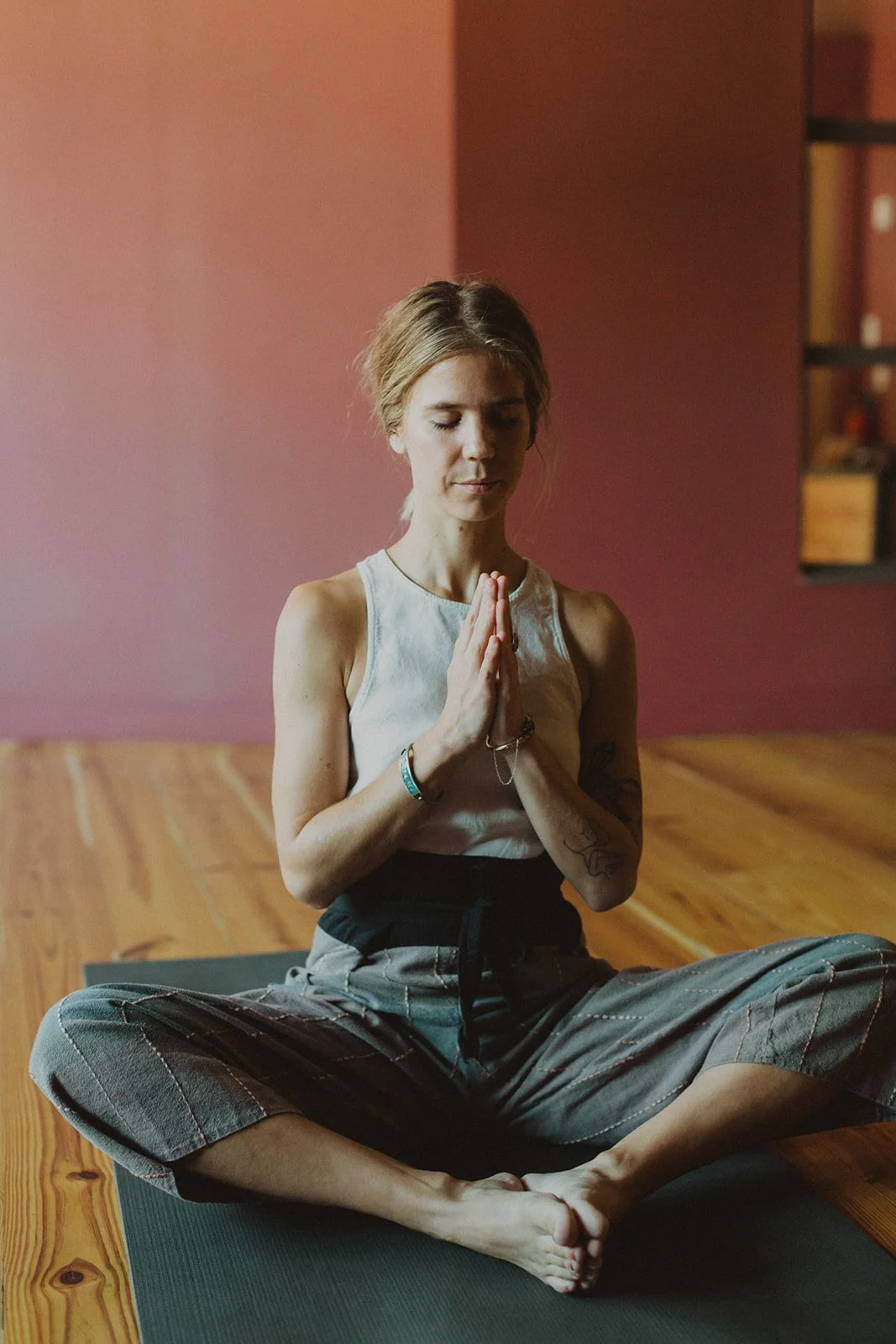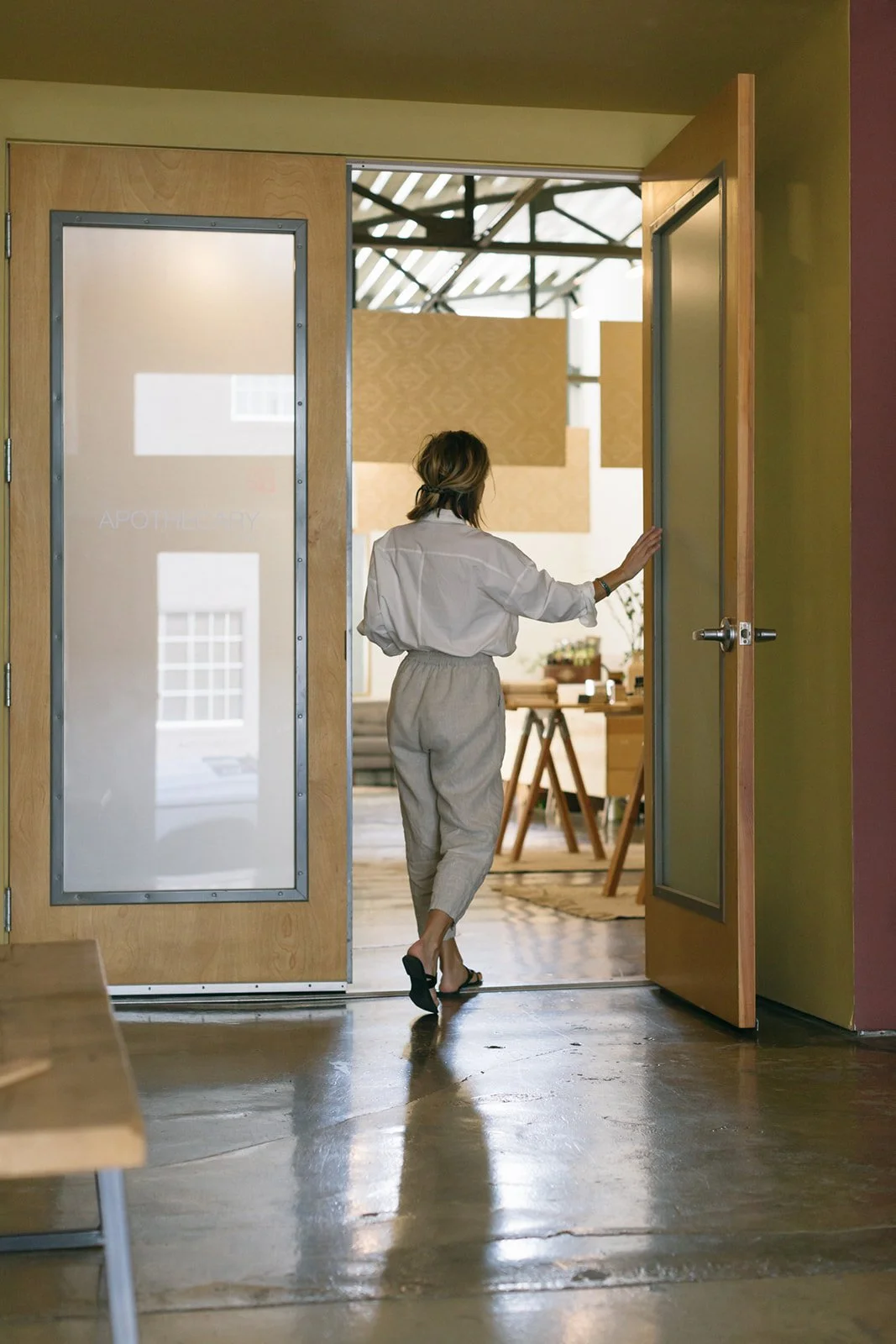
The Hidden Cost of Personal Growth: Why You Might Lose People While Finding Yourself
If you’ve ever been told to “just be yourself” or “be authentic and the right people will stay,” you know how oversimplified that advice can feel. As a therapist in Kansas City, I work with clients every day who are discovering that real personal growth comes with a cost nobody warns you about: you might lose people along the way.

Is Phone Use Really an Addiction — or a Form of Rest?
We hear it everywhere: “I’m addicted to my phone.”
“I need to use my phone less.”
“Phones are ruining our attention spans.”
While excessive phone use can absolutely become compulsive, the blanket claim that phone use itself is an addiction misses something important — especially when we look through the lens of the nervous system.
For many people, reaching for their phone isn’t about stimulation, productivity, or dopamine chasing. It’s about rest.
This article explores phone use, nervous system regulation, and mindfulness — and why shaming ourselves for being on our phones may actually increase anxiety rather than reduce it.

Why Meditation Helps High-Functioning Anxiety (and Why “Quieting the Mind” Isn’t What You Think)
If you’ve been conditioned to believe that:
moving fast = being effective
thinking constantly = being responsible
staying alert = staying safe
then your nervous system learns something important:
When the mind is racing, good things are happening.
Over time, the brain can start to feel uneasy — even unsafe — when there’s nothing to solve, optimize, or plan. Slowness can feel unfamiliar. Quiet can feel uncomfortable.
This is why so many high-functioning people struggle in moments of rest:
weekends feel oddly unsettling
evenings are filled with scrolling or mental replay
stillness feels boring or agitating rather than calming
The issue isn’t that the mind is “bad.”
It’s that it has been trained to stay in motion.

Have We Reached the Point of Over-Processing Our Feelings?
Brené Brown helped us understand that vulnerability isn’t weakness.
Glennon Doyle gave us permission to tell the truth about our inner lives.
Therapy culture taught us that feelings are information, not flaws.
That mattered.
It still does.
But at some point, an important question emerges:
What happens after you already know how you feel?

Returning to Winter: A Therapist’s Notes on Seasonal Transitions, Mindfulness, and Emotional Resilience
This is my first real cold season since moving to Maui, and I can feel this funny cocktail of emotions brewing inside me. There’s a very dramatic part of me (hi, inner lizard brain) that is convinced cold weather is a personal threat. An anticipatory fear rises in my body the second I imagine stepping outside and seeing my breath for the first time.
But here’s the thing: once I’m actually in it?
I remember I’m capable. I remember I’m adaptable. I remember my body knows what to do.
And honestly… I end up kind of loving it.

The Benefits of Intuitive Movement as Therapy
You don’t need choreography, structure, or even music to begin. Sometimes the body wants to stretch, shake, sway, or simply breathe more deeply. As a form of your own therapy, making space for these impulses can regulate the nervous system and deepen emotional processing. Over time, this helps create a stronger mind-body connection and a greater sense of safety within yourself.

Part 2: So What To Do Instead? From Fear-Based Love to Growth-Centered Partnership
In my last blog, Why I’m Done Helping People Find Safety in Relationships, I shared why it’s unsustainable to expect a partner to erase our fears or guarantee safety. That old model keeps couples stuck in cycles of codependency and avoidance.
So, what do we do instead? How do we stay connected in relationship while also taking responsibility for our own nervous system regulation, emotional resilience, and personal growth?
The answer begins with adjusting the priorities of the relationship itself. Instead of orienting the structure around codependency—where one person’s comfort depends on changing the other—we shift toward a structure that honors truth and reality. This means each partner is asked not to erase difficult emotions, but to accept their existence and relate to them honestly. From this place, the partnership becomes a container not for fixing, but for witnessing, growing, and rising to the occasion of life’s inevitable challenges.

Part 1: Why I’m Done Helping People Find Safety in Relationships
Safety is important. But it’s not the whole thing. We’re not just here to feel safe—we’re here to feel alive. To feel connected. To feel brave.

Staying Present with Mindfulness
Practicing mindfulness in your own life can help reduce unwanted symptoms. Mindfulness has been shown to decrease symptoms of anxiety and depression, improve your memory and focus, improve your ability to adapt to stress, increase your ability to manage emotions, reduce dwelling on thoughts or emotions, increase ability to manage trauma responses, and increase overall satisfaction and wellbeing. You may find using mindfulness to be helpful when you are feeling overwhelmed, stressed, anxious, or stuck. For me, I sometimes feel lost “in my head” and mindfulness helps me focus back to my present reality. I will experience a decrease in tension in my body and an increase in feelings of contentment. You may discover other benefits as you start to implement mindfulness into your daily routine.

Boundaries Lead to Your Most Authentic Self
A life without boundaries can become chaotic and overwhelming. Maybe you have experienced the effects that a lack of boundaries can have and are unsure where to start. Creating intentional boundaries can lead to healthier relationships, less stress, and true autonomy over your life. Let’s think about boundaries as limits. We all have limits, whether knowingly or unknowingly, that allow us to thrive at our best. When those limits are stretched or crossed, we are not in alignment with what is most important to us in life.

Neurofeedback: Stuck to Unstuck
The neuroplasticity of our brain says: change is both possible and inevitable. One way to tap into this change process is through Neurofeedback training. Neurofeedback training is a technique used to make sense of brainwaves and electrical activity, so that positive changes can be made. Neurofeedback is called a training, rather than a treatment, for a reason. It is much more like physical therapy or meditation for your mind and body. It is a tool that can be used to identify areas of weakness and enhance areas of growth.

Neuroplasticity: New Pathways
The psychology of neuroplasticity shows us that through repeated and intentional learning experiences, we are able to establish new neural pathways in our brain. The neural pathways in our brain are formed through our thoughts, emotions, and actions. Every time we think, feel, or act - the associated pathways are strengthened. The more a pathway is used, the stronger it become; in turn, the less a pathway is used, the weaker it becomes.

How to Hold on in the Thick of Divorce
Remember, this is hard. It’s going to feel impossible. Watch the ways that you may be making it harder on yourself by avoiding and dodging rather than facing and processing. Stay kind, honest and open with yourself and your support system. There’s always help if you need it.

What to do When Seasonal Depression is Sucking the Life Out of You
Forget those “seasonal depression” lights that people are using, I’m asking you to embrace the natural darkening of the season. Have all the fun you want when the sun’s out and up, but just as the world gets dark, so should you. Turn in earlier; look towards your own “darker” parts of yourself. The universe is aiding you during this time of year. Feel that support as you embark on important shadow work. This means taking this season to really nurture the parts of you that need healing. Think about what hasn’t been working well for you and start to investigate why. What fears come up as you think about changing those parts of yourself? What values are we privileging if we do change? If we don’t?

Loneliness: the Crippling Feeling you Just Can’t Shake Alone
People are wired for human connection. When we experience a lack of meaningful relationships, this crushing feeling of loneliness creeps in and becomes a monster to deal with.

Ready for Better: A Fresh Perspective on Counseling Kansas City
Life is real, it’s raw and it requires self-work. Sometimes that self needs more help than we’re able to do alone. That, my dear friend, is where therapy comes in. I mean facing fears, repairing relationships, grieving loss, navigating life transitions, dealing with depression, healing from trauma - all tough things that people don’t look forward to talking about.
